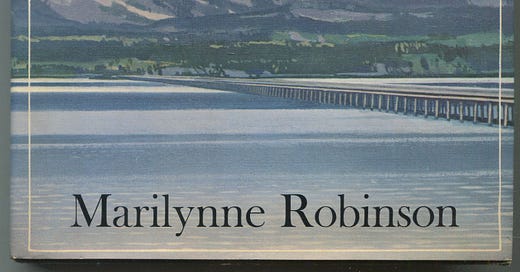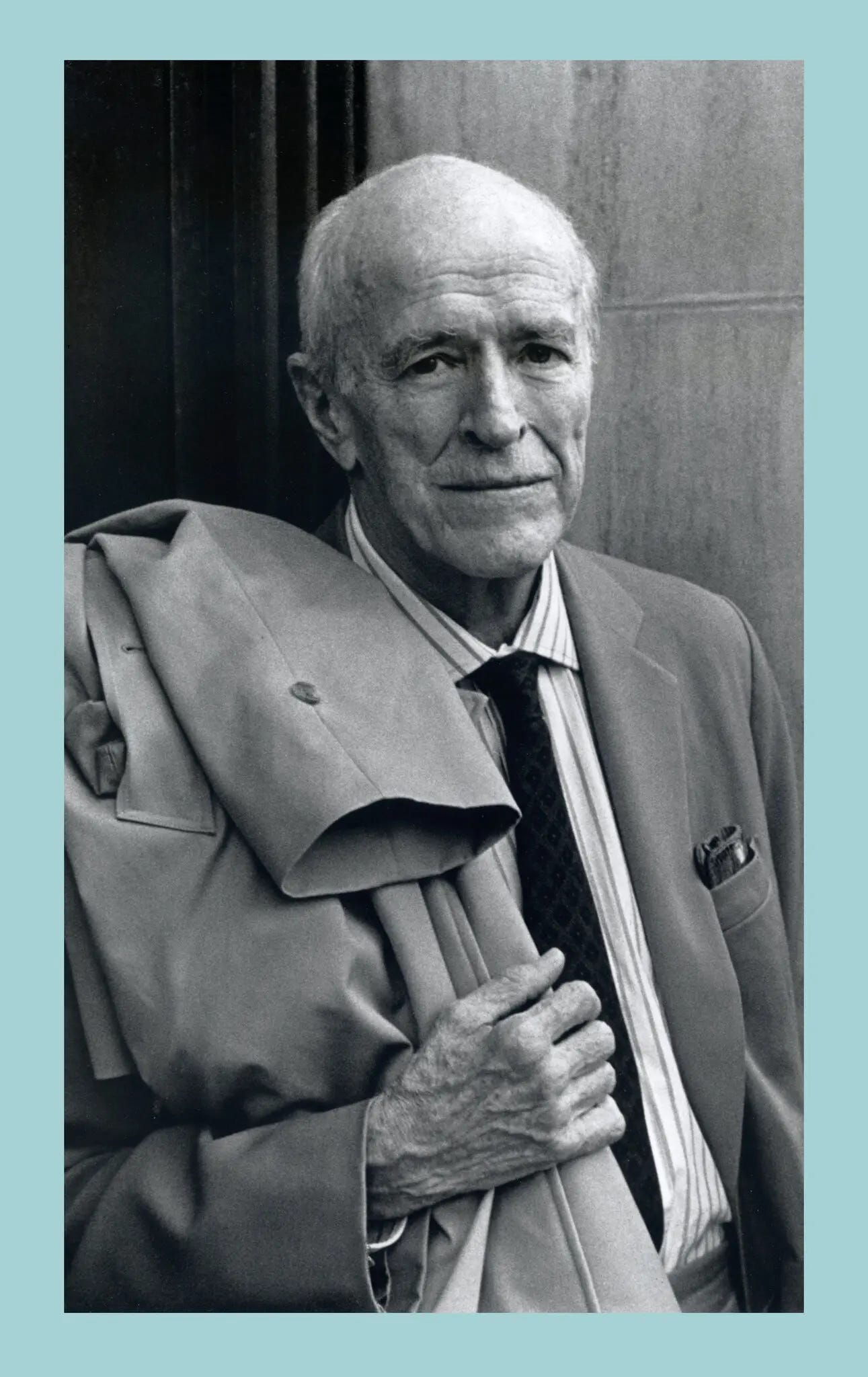Birth Year Project:
You supply your birth year, I respond with a short list of books published that year—the popular/well-known titles first, then some books I'd recommend. If your year's already been done, I'll do an update. So far, we’ve done 13 years altogether, between 1946 and 1978.
Extra credit: You read one of the books (ideally one you're unfamiliar with), then tell me what you thought. If we get enough of these, I'll aggregate and post.
Well-Known/Bestselling Fiction:
The Clan of the Cave Bear, Jean M. Auel 1
The Key to Rebecca, Ken Follett
The Bourne Identity, Robert Ludlum
Smiley's People, John le Carré 2
The Covenant, James Michner
Four Works of World Literature:
Waiting for the Barbarians, J. M. Coetzee [South Africa]3
The Name of the Rose (Il Nome della Rosa), Umberto Eco [Italy]
I Served the King of England, Bohumil Hrabel [Czech]4
Mayombe, Artur Carlos Maurício Pestana dos Santos [Angola]5
Special Mention:
A Confederacy of Dunces, John Kennedy Toole 6
Four Works of Nonfiction:
When the Lights Go Down, Pauline Kael 7
Cosmos, Carl Sagan 8
Thy Neighbor's Wife, Gay Talese 9
The Third Wave, Alvin Toffler10
My List:
Turns out 1980 was a really rich year for books in my top tier.
A Month in the Country, J. L. Carr11
Clear Light of Day, Anita Desai12
Riddley Walker, Russell Hoban13
So Long, See You Tomorrow, William Maxwell14
Housekeeping, Marilynne Robinson15
Rough Strife, Lynn Sharon Schwartz16
Household Words, Joan Silber17
Aberration of Starlight, Gilbert Sorrentino18
The Collected Stories of Eudora Welty [stories], Eudora Welty19
William Maxwell
Cave Bear: Massively popular, first of her Earth’s Children series. Pre-historical fiction.
le Carré: This is the seventh of nine George Smiley novels.
I never expected to like spy stuff . . . but then I read a few. The shelves at my wife’s family’s compound on Lake Superior held some early le Carré paperbacks (I’d already read the old Nevil Shutes and Ross Macdonalds, etc.), so I joined the rest of the world in knowing how good he was. My favorite remains, A Perfect Spy (1986). “John le Carré” was the pen name of David Cornwell.
One of his sons, Nicholas Cornwell, writes speculative fiction under the name Nick Harkaway—try The Gone-Away World (2008).
Coetzee: How to say his name? As close as I can render it here: Kuht-see [with a whisper of an uh at the end, and the s is halfway to a z. OK, well, I gave it a shot. Winner of two Bookers and the 2003 Nobel Laureate in Literature. This is his third novel, followed by a string of others that established him as a major literary writer, including:
Life & Times of Michael K (1983)
Foe (1986)
Age of Iron (1990)
The Master of Petersburg (1994)
Disgrace (1999)
Elizabeth Costello (2003)
Hrabal: Hrabal wrote the novel, Closely Observed Trains (1965), filmed by Czech director Jiří Menzel—among a wave of foreign films that washed over the art house crowd in the 50s and 60s . . . The 400 Blows (1959), Breathless (1960), La Dolce Vita (1960), Jules and Jim (1962), Breathless (1960), Knife in the Water (1962), Blow-Up (1966), Persona (1966), etc.
Two of his other novels: Too Loud a Solitude [circulated via samizdat (1976), published within Czechoslovakia (1989), English translation by Michael Henry Heim (1990)]. And I Served the King of England [written 1971, published in Czech, 1983, English translation by Paul Wilson, 1989.
Here’s a piece on him from The New Yorker:
https://www.newyorker.com/books/under-review/the-violent-insights-of-bohumil-hrabalAnd one from LitHub:
https://lithub.com/the-czech-writer-remembers-what-it-was-to-fall-in-love-with-literature/Mayombe: Pepetela is the pen name of Portuguese Angolan writer, Artur Carlos Mauŕicio Pestana dos Santos. This novel depicts anti-colonial guerillas in the Angolan struggle for independence. Pestana dos Santos served as Vice Minister of Education in the new government.
Here’s another Angolan writer to know: José Eduardo Agualusa: The Book of Chameleons (2004) [English trans. 2007], A General Theory of Oblivion (2012) [English trans. 2015]. Both translated by Daniel Hahn.
Dunces: A cult classic. Posthumously awarded the 1981 Pulitzer for Fiction. Another book I’ve never read, in part because of its miserable backstory: Manuscript unanimously rejected; Toole kills himself; eleven years later, thanks to his mother and writer Walker Percy, it’s published, is widely read, becomes a staple of Southern Comic Lit.
https://en.wikipedia.org/wiki/A_Confederacy_of_Dunces https://en.wikipedia.org/wiki/John_Kennedy_Toole
Pauline Kael: Long-time movie reviewer for The New Yorker. Sharp-tongued, controversial, contrary-minded, highly influential. Other books: I Lost It at the Movies (1965), Kiss Kiss Bang Bang (1968).
Cosmos: Perhaps you’ve heard some aged Boomer say, Billions . . . in a certain awe-filled tone of voice? They’re doing astrophysicist Carl Sagan, a wonderful and rare combination of big thinker and lucid/enthusiastic/hard-to-resist speaker. He (along with Ann Druyan and Steven Soter) wrote the 13-part series, Cosmos: A Personal Voyage (1980-81) aired on PBS—long-considered, “a watershed moment for science programming on TV.” It’s hard to over-estimate how engaging Sagan was. Wrote a number of other popular science books—Broca’s Brain (1979), Pale Blue Dot (1994)—and a novel, Contact (1985) [source of the Jodie Foster film]. A science hero, to put it simply. He died far too young—age 62, at Seattle’s Fred Hutchinson Cancer Research Center.
Talese:
https://en.wikipedia.org/wiki/Thy_Neighbor%27s_Wife_(book)Toffler: You don’t hear this name much now, but he was a well-known, well-regarded futurist in the latter half of the 20th c. This book was the follow-up to his massively popular Future Shock (1970). He argued that civilization evolved in a three primary waves—the Agricultural, followed by the Industrial, followed by the Information Age. Here’s a link to a BBC piece discussing what he got right and what he got wrong:
https://www.bbc.com/news/world-us-canada-36675260J. L. Carr: This is a lovely book, one in a long list of reasons we should praise the work of the New York Review of Books Press. They sync up well with the ethos of this Substack: Keep excellent fiction from the past from disappearing.
[If you happen to be a writer, a quick question: What’s it feel like to imagine your book having a last reader—”last” as in never again, not once in the entire future of the universe? Well, maybe you’re made of sterner stuff that I am . . . ]
Where was I? Right, NYRB. Here are some of their titles I’ve mentioned in earlier posts:
Great Granny Webster, Caroline Blackwood (1977)
Speedboat, Renata Adler (1976)
J R, William Gaddis (1975)
Turtle Diary, Russell Hoban (1975)
The Siege of Krishnapur, J. G. Farrell (1973)
Fat City, Leonard Gardner (1969)
Season of Migration to the North, Tayeb Salih (1966)
The Tenants of Moonbloom, Edward Lewis Wallant (1963)
Anglo-Saxon Attitudes, Angus Wilson (1956)
Lucky Jim, Kingsley Amis (1954)
Desai: Long-time creative writing guru at MIT, grew up speaking Hindi and German, adopted English as her writing language. Years ago, I stumbled onto a beautiful small story of hers—“Pigeons at Daybreak” in Games at Twilight (1978)—Delhi, heat, old couple, power goes out, they sleep on the roof, pigeons at daybreak. The Clear Light of Day is semi-autobiographical, a powerful slender novel about the 1947 partitioning of India in the wake of the Raj. Her daughter, Kiran Desai, wrote the 2006 Booker-winning novel, The Inheritance of Loss.
Hoban: I’ve had occasion to mention this work several times—in the postings on voice and speculative fiction (the setting is a primitive deep future, the narrator’s language still recognizably English). Hoban also wrote Turtle Diary (1975)—two strangers conspire to free a captive sea turtle [filmed in 1985 with Ben Kingsley and Glenda Jackson, screenplay by Harold Pinter]. But the real surprise: this is the same guy who wrote the Curious George series of children’s books.
Maxwell: This is one of two books I’ve long called my favorite novels—the other is Cormac McCarthy’s Suttree (1979).
It’s the story of two betrayals, one resulting in a murder, the other in a small act of boyhood selfishness remembered across a long lifetime. The writing is both spare and exquisite. This was Maxwell’s final novel; it can be read in a day. Much of Maxwell’s writing was thinly-veiled autobiography; with this book he began calling things by their real names—Lincoln, Illinois becomes Lincoln, Illinois; Billie Dyer and Other Stories (1992) is called fiction but has the feel of memoir. Maxwell was fiction editor for The New Yorker for almost forty years. As reported in an earlier post, I met him once in the 1990s and fumbled my way through a few moments of fan gushing, which he accepted with grace. Besides these two books, I recommend his 1948 novel, Time Will Darken It.
Here’s a blog post that gives a good picture of the man:
http://bookhaven.stanford.edu/2012/10/remembering-william-maxwell-%E2%80%9Che-used-a-pause-better-than-most-of-us-use-a-paragraph-%E2%80%9D/
A bunch of you already treasure this novel, I’d like to believe, but literary reputations fade (in a whipstitch, as my mother used to say); if you’ve never read it, now—at the risk of sounding pushy—would be an excellent time.
Housekeeping: This is firmly seated in my inner circle of novels. Set in the small lakeside town of Fingerbone (based on Sandpoint, ID, where Robinson grew up), the story of two sisters reared by their unconventional aunt. Years after Housekeeping, she wrote a quartet of novels: Gilead (2004), Home (2008), Lila (2014) and Jack (2020).
Robinson is a heavyweight, writer of criticism and philosophy/religion/ethics, winner of many awards, holder of many honorary degrees, etc. In 2015 the New York Review of Books published a two-part conversation between Robinson and President Barack Obama.
Rough Strife: She’s also a poet, memoirist, literary critic, translator of Italian. This was her first novel, much admired, the story of long marriage. Raymond Carver said it was a favorite novel of his.
Household Words: Silber should be better known—ten books, including three short story colections, multiple awards . . .
https://joansilber.net/Sorrentino: Novelist/story writer/poet/critic/professor/editor. Postmodernist.
Besides this one, I recommend The Abyss of Human Illusion (2009) and Mulligan Stew (1979). [His son, Christopher Sorrentino, is also a novelist/story writer/memoirist.]
Here’s a piece on the dad from Electric Literature:
https://electricliterature.com/gilbert-sorrentino-the-lost-laureate-of-brooklyn/And an obit from the Guardian:
https://www.theguardian.com/news/2006/jun/07/guardianobituaries.booksobituariesEudora Welty: I confess I’ve never read all the way through this, but when I learning to write stories she and Flannery O’Connor were the one-two punch of the Southern Women Writers (Short Fiction Division). Like Wright Morris, she had a side life as a photographer—Eudora Welty: Photographs (1993).
And I revere her story, “No Place for You, My Love”—
https://www.newyorker.com/magazine/1952/09/20/no-place-for-you-my-love






My first son was born this year 1980, and so were several favorite novels: Housekeeping of course (good film); The Name of the Rose because my history, anthropology, and art history background allowed me to digest an otherwise difficult novel (the film is good too); Desai, Welty, and Sagan. Among my least favorites: Clan of the Cave Bear, a mashup of every crackpot and discarded theory (she had a beach house a half mile south of ours; turned off the film); Disgrace, which has haunted me every since as a story I never wanted in my head (horrified all over again to discover later that the author is White); and Confederacy of Dunces which offended me by its humor since I have a schizophrenic in-law. Yes, as you say, a miserable backstory. Not funny to me.
Wonderful. You may have read others under "my list" but they're all good. Maxwell and Carr are musts, then Silber [which is less known] . . . I await your report!